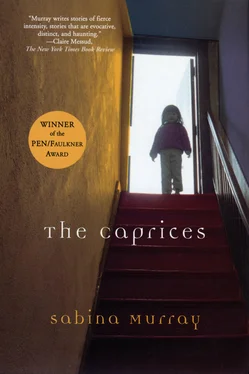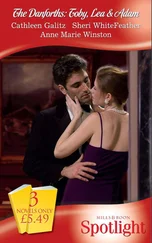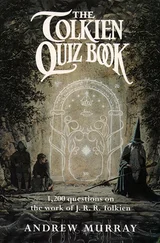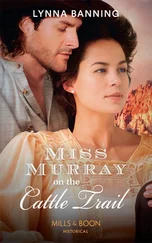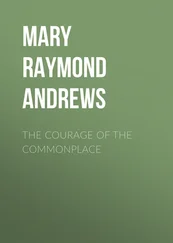Gavin popped open another beer. “Then you drove around with him in the boot of your car for half a year?”
“What was I supposed to do?” Ned looked out at the waves. Ned had been waiting for some sort of instructions from the company — what was he supposed to do with Bob’s ashes? — but no one seemed willing to take on the responsibility. At first Ned found driving around with Bob Cairns darkly amusing. He started making conversation, as if Bob were in the passenger seat, rather than bouncing around in the boot of his car with the tool box and spare tire. One night, Ned took the urn with him into the Blue Jeans Bar in Bangkok and told the fellows that Bob Cairns had finally decided to come out for a drink. But recently Ned had heard whispering coming over the back seat, harsh echoes usually in the dead of night, and although he’d clocked this phenomenon up to a combination of ephedrine and Mekong whisky, Ned had decided that it was time for Bob to go. Australia Day was as good as any. Besides, his girlfriend back home had told him that you scattered ashes across the sea. This was the right thing to do.
Ned held the railing of the boat and watched a parasailing tourist being dragged across the sky. Ned thought he was probably German, like most of the tourists, and noted the helium balloon-shaped shadow that he cast on the water. “Beautiful day. Clear sky, all except for Herr Tourist up there.”
Gavin laughed. “Well, then, let’s do it. All the fish will be off for happy hour if we don’t get a move on.”
Ned unzipped his duffel bag and took out the urn. “Bob, Gavin. Gavin, Bob.”
“I knew Bob,” said Gavin.
“Then why didn’t you say so?”
“Never met him,” said Gavin. “In 1985 we were here in Pataya for the Year of Clean Water conference at the Hilton. Bob gave some talk on livestock management and water contamination. Couldn’t have been that long before he died. Anyway, I saw him taking a bathe not too far from here. It was early, maybe six. I was stumbling down the beach coming back from. . well, that doesn’t matter. He wasn’t swimming, didn’t go into the water beyond his waist, just seemed to walk about at that level. I sat down to have a smoke. He finished, came back up the beach for his towel, and then I saw his legs. They looked like they’d been attacked by a shark or something. There were these huge, round scars, whole chunks of flesh gone. I’ve never seen anything like it. Those legs could have told a story.”
“So could Bob, if he’d wanted to, but he didn’t.”
Ned unscrewed the cover of the urn and Gavin opened the bottle of Swan Lager, which was to follow Bob into the sea. Bob was from Western Australia and, although Ned and Gavin knew nothing else, they felt sure that Bob had downed some Swans in his time.
“What if he was religious?” asked Ned.
“What if he wasn’t?” Gavin looked at the urn and sniffed its contents. “Hell, he’s been in God’s hands for a while now.”
“God’s hands,” said Ned, “and my boot.”
“I can sing something,” said Gavin. “I’ll sing him a sheep song. ‘The Drover’s Dream.’”
Ned nodded in approval. Gavin cleared his throat and started in on the song, in a surprisingly lovely voice.
“One night while traveling sheep, me companions lay asleep ,
’Twas not a star to ’luminate the sky .
I was dreamin’ I suppose, for my eyes were nearly closed ,
When a very strange procession passed me by .
First there came a kangaroo, with his swag of blankets blue .
A dingo ran beside him as his mate .
They were traveling mighty fast, but they shouted as they passed ,
You’ll have to jog along, it’s getting late.”
Gavin sang on about the dreaming man, the singing crows and dancing koalas, flute-playing bandicoots and smiling lizards, and how the drover awoke only to find himself beneath his cart, confused and unconvinced that it had all been a dream.
Bob’s ashes were stroked across the waves, sucked into the sea’s mouth, spat out on the surface. They etched stories where no one would see them and read their traces. The body was no longer. Once, Bob had struggled against it. He’d thought, This body’s going to starve and then stop and I’ll go along with it, so I better take care of it, ’cause what’s the point in going on without a body? And as he heard the monkeys screaming in the canopy of the jungle growth he thought that if he let his body quit that’s all he’d be, a monkey’s scream. After that, when he heard the monkeys call to one another, he thought that it was Sean, or Paul, or his brother Mark reminding him that they were freed from their corpses but still trapped along the railroad.
Hard to piece it all together, that time. Three years spent that somehow wound themselves into one long second. How long had Mark managed to survive? It was hard to tell. They had been captured together in Indonesia, some distant place where the enemy was still a Japanese soldier and not starvation, where one shouldered a rifle and not a shovel. They made the journey in the hull of the boat, surrounded by pounding waves and dying of thirst. Stopover in Burma. Destination Thailand. Mark had been strong then. He was down from his usual 190 pounds, but was still large and imposing. Bob had always been wiry and, as Mark was whittled away until he weighed only 126, Bob seemed little changed in comparison.
How can you understand the greater purpose of your labor when all you can see is one tiny portion? Bob thought of the Egyptian slaves dragging blocks of stone. Did they even know what a pyramid was or why they were building it? He didn’t know. Railroad tracks in the middle of nowhere going to the end of the earth, ties laid in the jungle — men falling dead of exhaustion and lack of food. Sometimes Bob would imagine, as he shoveled, that beneath the tons of mud there’d be a door. The door would lead to his mother’s kitchen — no people, just the kitchen — and a steak would be frying heartily on the stove.
The Japanese saw that Bob’s brother was an ox during the first week of construction. Four Americans or seven Dutch to one Aussie worker, they said, and Mark was equal to two of his countrymen. Even with dysentery and the first signs of beriberi Mark labored on the railroad, that magical artery, which they had learned would link Bangkok to Burma and eventually India. The railroad meant victory for the Japanese; the POWs were an expendable resource, a lucky find to achieve this end. Side by side, Bob and his brother shoveled the endless mud toward an Allied defeat. Often they were waist deep in fetid water, careful not to go in any deeper, if it was possible. That was what the Dutch doctor said. His English wasn’t good enough to explain why at first, but he would learn the word “cholera.”
The mind slipped as the body labored. Bob’s thoughts twisted and soared, escaping the pain of his overtaxed muscles. Once, while his mind had been flying around, he had fallen to the ground beneath a blow delivered by a guard. Bob wasn’t sure what his body had done to inspire this, and he really didn’t care. He thought he’d stay lying there. Maybe he’d just die like that, and that would be better. Maybe death would offer a moment’s peace, but something rebelled, something he could not understand, and he’d forced himself up and back to work. Some strange spirit inhabiting Bob’s body wanted to live.
Or maybe it was just Mark whispering as he shoveled, “You’ll be right,” that raised Bob to his feet. Bob thought about the sheep-shearing competitions back home, which Mark always won. The other shearers said it wasn’t fair. Smiling, they said that Mark hypnotized the sheep. He would pull one from the pen, flip it on its back, and whisper to it, “You’ll be right.” The sheep would lie still then, beneath the clippers. In a few seconds, expertly shorn with barely a nick, they’d leave his reassuring hold.
Читать дальше
